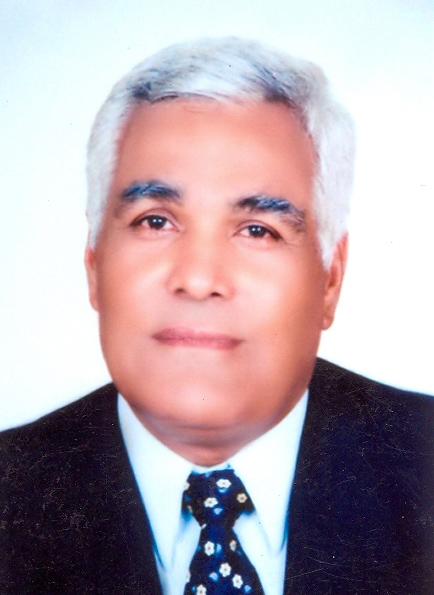- 09 Jan 2014
THE JAPAN-MUSLIM WORLD DIALOGUE AMONG CIVILIZATIONS: The Roots, the Record, and the Future
Abstract
Professor Mohammad Selim will present on the record of Japan-Muslim World Dialogue among Civilizations (JMDC) which was launched in 2001 and ended in 2012, through outlining its origins, main achievements, assessing the extent to which this dialogue has succeeded in achieving its objectives, identifying the main obstacles that have constrained its ability to achieve these objectives, and finally presenting some proposals to enhance its contribution to the creation of a cultural understating between Japan and the Muslim world. Professor Selim’s presentation is mainly based on his actual participation in most of the 10 rounds of the dialogue including the main documents and interviews with some of the key participants.
In the first part of this public talk, Professor Selim will review the early cultural contacts between the Muslims and the Japanese since the Meiji era until the end of the Cold War. The second part of the presentation will focus on the initiation of the JMDC through a review of the context in which Foreign Minister Kono suggested the initiation of that dialogue in 2001. The third part of the talk will review the record of the ten rounds of the dialogue held between 2002 and 2012. Professor Selim will then assess the achievements and failures of these ten rounds of the dialogue and outline proposals for invigorating the JMDC if it were to continue in the future. These proposals evolve around the following notions, (i) an agreement on the philosophy of the dialogue. (ii) Creating a permanent Japan-Muslim world cultural foundation with contact centers in all countries participating in the Dialogue, (iii) The JMDC should include more grass-root cultural interactions from all over Japan and the Muslim world, according to which Muslims from excluded areas in Africa and Central Asia must be invited to participate in the dialogue with special attention to younger generations, (iv) Two main sources of mass misperceptions still haunt Japan’s relations with the Muslim world, these are misperceptions rooted in educational textbooks and misunderstandings of the Japanese religious beliefs in the Muslim world. These two sources deserve special attention in the next decade of the JMCD.
_______________________________________________________________________
Kindly note that the seminar will be held at MEI’s new premises at the following address:
No. 29, Heng Mui Keng Terrace
Tower B, #06-06 Singapore 11962 (Ample parking in 4 floors of Car Park spaces)
For Maps and Directions, CLICK HERE
About the Speakers

Mohammad Elsayed Selim is an Egyptian citizen presently working as a Professor of Political Science at Kuwait University. He got his Ph.D. in Political Science from Carleton University, Canada in 1979, and since then he has taught in Cairo University, American University in Cairo, King Saud University, and the United Arab Emirates University. He joined Kuwait University in 2003. Between 1995 and 2003 he established the Center for Asian Studies in Cairo University and served as its first director. At present he serves as the director of the Unit for Asian Studies at the College of Social Sciences, Kuwait University. He majors in the study of International Relations and Foreign Policy Analysis. He published a number of books and articles in Arabic and English in scholarly journals on issues related to foreign policy analysis, Arab-Asian relations, and the dialogues among civilizations. He also represented the Government of Egypt in a number of world and Asian forums such as the Conference of Interaction and Confidence-Building Measures in Asia in Kazakhstan. In 2008, he was awarded the Egyptian State Prize for Excellence in the Social Sciences by the Higher Council for Culture. He participated in a number of conferences on the dialogues among civilizations including six of the ten rounds of the Japan-Muslim world dialogue.
Among his major books are: Non-Alignment in a Changing World (1983), Relations Among Muslim States (1991), Foreign Policy Analysis (1998, 2013), The Nationalization of the Suez Canal Company: A Study in Decision Making (2002), and theDevelopment of International Politics in the Nineteenth and Twentieth Centuries (2008, third edition).
Over the last 20 years he published a number of books and academic articles on the dialogue among civilizations, such as The Egyptian-Korean Dialogue, (Cairo: Center for Asian Studies of Cairo University, 1997), The Japan-Muslim World Dialogue among Civilizations, (Cairo: Center for Asian Studies, Cairo University, 2005), “Towards a viable Inter-Cultural Mediterranean Dialogue,” in Carlo Di Bessedelle, ed., Proceedings of the General Assemblies of the Community of Mediterranean Universities, (Adata: Editore, 2007), pp. 23-40, “Assessing the Dialogues of Civilizations between the Western and Muslim Worlds,” Arab Studies Quarterly, 31 (1&2), Winter-Spring 2009, pp. 49-68, “The Interchange of Civilizations in the Mediterranean Area,” in The International Conference on the Interchange of Civilizations in the Mediterranean, (Busan, Pusan University of Foreign Studies, 2010), and “The Premises and Promises of the Buddhist-Muslim Dialogue,” Journal of Oriental Studies (Tokyo), 21, 2011, pp. 178-188. Among his recent books, The Political Thought of Mahathir bin Mohamed, (Cairo: Program of Malaysian Studies, 2006), Relations between Kuwait and the States of the Commonwealth of Independent States, (Kuwait: Annals of the Arts and Social Sciences, Kuwait University, 2013).
Among his recent articles and book chapters, -“Environmental Security in the Arab World”, in: Brauch, Hans Günter et al. (Eds.): Facing Global Environmental Change: Environmental, Human, Energy, Food, Health and Water Security Concepts. Hexagon Series on Human and Environmental Security and Peace, vol. 4, 2009), “The Arab democracy movement and its implications for Europe,” Journal of European Studies, (University of Karachi), 28 (1), January 2012, pp. 1-26.




